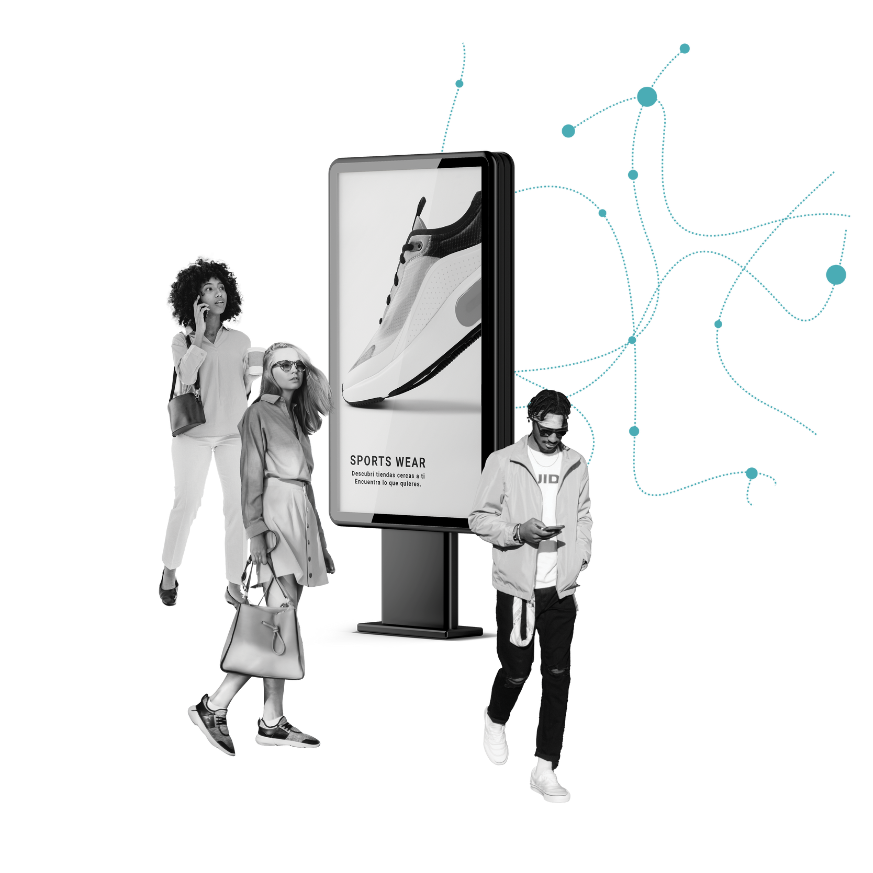
About Christoph Herwig
Christoph is VP Global Marketing at Adsquare and based in the Berlin HQ. Before leading the marketing activities, Chris was VP Data Partnerships and responsible for Adsquare's global data supply.
As a globally leading Location Intelligence Platform, Adsquare’s mission is to power marketers with geospatial data science to enhance their omnichannel campaign experience. We are part of a new generation of companies that develop data-driven solutions, powered by statistical and contextual data, with data privacy top of mind.
Location data is a key component in the analysis of movement flows and user behaviour. But there are serious differences between the different types of location data that marketers need to consider.
This article looks at the different types of location data and explains why Adsquare places particular emphasis on SDK-derived location data and why everyone should leave bidstream data out of the equation completely.
Bidstream location data refers to location data that is collected by third-party advertising networks and data brokers through ad requests and responses as users browse the web or use mobile apps. This data is often collected without the user’s explicit consent or knowledge, and can be used to create profiles of users’ behaviour, interests, and locations over time. While bidstream data can be captured in large user volumes, it lacks granularity when it comes to signals per user per day and therefore does not lend itself to accurate geospatial data science.
It’s worth noting that there are ongoing debates around the ethical and legal implications of bidstream location data collection, particularly with regards to user privacy and data protection. Some jurisdictions have taken steps to regulate the collection and use of location data, while others are still in the process of developing laws and guidelines in this area.
For SDK-derived location data a distinction is made between foreground and background location data.
Foreground location data refers to location information that is gathered by mobile devices while a user actively uses a location-based app or service. For example, if a user is using a ride-hailing app like Uber, the app would collect their location data in the foreground to provide accurate pickup and drop-off locations.
Background location data refers to the information collected by mobile devices about the user’s location when they are not actively using location-based applications or services. This data is gathered through the device’s GPS, Wi-Fi, Bluetooth, and cellular network connections and can include information about the user’s current location, movement patterns, and frequently visited places.
Mobile devices typically collect this data in the background to support features such as location-based notifications, geotagging, and targeted advertising. This data can also be used by third-party applications and services to provide location-based services such as navigation, weather forecasts, and local search results.
Users must explicitly agree to share this data when downloading an application. Many do, as it can be useful for improving the mobile experience. Recently, explicit consent is being sought not only from the app itself, but also from the operating system, e.g. iOS, to improve privacy for consumers.
Bidstream location data is collected through ad requests without the user’s explicit consent and is therefore often illegally used for advertising and marketing purposes. Adsquare does not use such data in any way; not only because it raises privacy concerns but also because it isn’t granular enough to really understand how people move throughout the real world.
SDK-derived location data can be grouped into foreground and background location data.
Foreground location data is collected actively when a user is using a specific location-based app or service. Background location data is collected passively by mobile devices when users are not actively using location-based apps or services. In both cases, the user explicitly consents to the data being collected and shared. Background location data can provide an even more accurate picture of users’ habits and preferences, which can be used to deliver targeted and personalised marketing messages.
Adsquare’s data-driven solutions that enable improved campaign planning and activation, as well as measurement and attribution for campaign optimisation are to 100% relying on SDK-derived location data for the reasons previously stated.
If you’d like to learn more about us and put our claim “Location data played right.” to the test, we’d be happy to schedule a call with you. Simply leave us a message via our contact form.
About Christoph Herwig
Christoph is VP Global Marketing at Adsquare and based in the Berlin HQ. Before leading the marketing activities, Chris was VP Data Partnerships and responsible for Adsquare's global data supply.